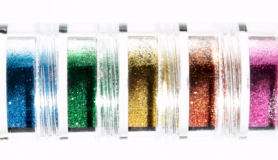Once you’ve worked out the logistics of cloth nappies, realised you’re somehow finding slightly embarrassing amounts of money to buy ridiculously pretty printed nappies and have (sort of) gotten over dealing with the poop – reusable sanitary products are an easy step.
1. Health. Your health is the most important reason of all. With disposable tampons being widely associated with a risk of developing the potentially fatal Toxic Shock Syndrome (TSS), many women find themselves opting for disposable sanitary pads not realising that they too contain a number of harmful chemicals. The risks of these chemicals range from mild allergic reactions to burns, fertility complications such as endometriosis and reproductive cancers. No form of reusable sanitary protection has ever been linked with TSS or any other life threatening diseases. Sensitive individuals may wish to opt for natural, uncoloured products however.
2. Cost. The cost of switching to reusable sanitary products is very appealing. With the average woman spending roughly £4 per month on sanitary products (around £50 per year), over a lifetime we can waste as much as £1700. For a good set of 20 reusable sanitary pads, you can expect to pay roughly £80. Less for reusable tampons and just £20 for a mooncup. If you were to replace these every 5 years as suggested, you can save anything from £1,100 to £1550.
3. Convenience. Contrary to popular belief, reusable sanitary products can be just as convenient and discreet as their disposable counterparts. With many pads and tampons coming with their own little pouches/cases, they are as handy and compact as any other sanitary product and most people will think the pouch is simply for make-up. The plastic wrappers on disposables are fooling nobody, however! With reusable sanitary products, you will never again be caught short and have to resort to sending your partner or family member out to the shop for you. With a supply of cloth pads/tampons ready and waiting, all you need is a wetbag and you’re good to go until the end of your period. A 40 degree wash with a rinse will keep them clean and soft for at least 5 years. Mooncups are easier still, requiring little more than a rinse a few times per day and a wash with warm soapy water before being boiled in a pan of hot water before re-using the following month.
4. Comfort. Many women are surprised to find that switching to reusable sanitary protection can help to reduce the pain of menstrual cramps and even the flow and duration of their period. It is unknown exactly why this occurs, though it is thought that sensitivity to certain chemicals plays a role for some. Cloth sanitary pads are also better at reducing the risk of odours as they encourage airflow, whilst disposable pads do not and the absorbent gel-like chemicals inside them generate heat which actually enhances odours.
5. Environment. There is also the important issue of the impact that disposable sanitary products have upon the environment. The average woman sends over 16 thousand disposable sanitary products to landfill over her lifetime which poses an environmental hazard due to the waste fluids involved. Furthermore, each pad takes several hundred years to break down and degrade meaning that the very first tampon ever used is still out there somewhere, looking not all that different to the day it was very first thrown away. Landfill space is starting to run out and sending waste to landfill costs the UK economy tens of millions of pounds each year. Switching to reusable sanitary products can have immediate positive implications for this situation.






